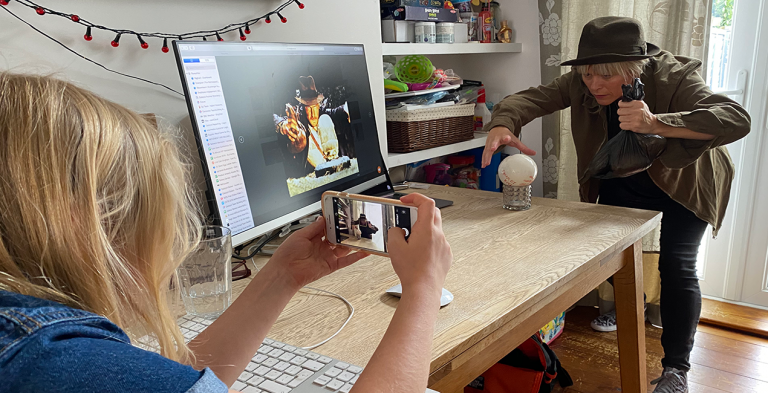Introduction
In the current work landscape, remote work is becoming increasingly popular due to its flexibility and convenience. However, remote work can also be challenging, especially when it comes to team building and creating a positive work culture. This is where virtual team building comes in. In this article, we will explore the benefits of virtual team building, how it can help create a positive remote work culture, and some effective virtual team-building activities.

Benefits of Virtual Teambuilding
Virtual team building offers a range of benefits for remote teams. Firstly, it helps to bridge the gap between remote team members, creating a sense of community and cohesion. This is especially important when team members are located in different time zones and have limited opportunities to interact with each other.
Secondly, virtual team building can improve communication and collaboration among team members. By engaging in team-building activities, team members can learn more about each other’s strengths, weaknesses, and communication styles, leading to better collaboration and improved productivity.
Finally, virtual team building can help to boost morale and motivation among remote workers. By participating in fun and engaging activities, team members can feel more connected to their colleagues and the company, leading to higher job satisfaction and lower turnover rates.
Creating a Positive Remote Work Culture through Virtual Teambuilding
Virtual team building can play a crucial role in creating a positive remote work culture. By engaging in activities that promote collaboration, communication, and teamwork, remote workers can feel more connected to their colleagues and the company, leading to a more positive work environment.
To create a positive remote work culture through virtual team building, companies should first ensure that team-building activities align with their company culture and values. For example, if the company values creativity and innovation, team-building activities could involve brainstorming sessions or design challenges.
Secondly, companies should provide opportunities for remote workers to provide feedback and suggestions for team-building activities. This can help to ensure that team-building activities are engaging, relevant, and enjoyable for all team members.
Finally, companies should recognize and reward team members for their participation in virtual team-building activities. This can help to reinforce the importance of team building and create a culture of collaboration and teamwork.
Effective Virtual Teambuilding Activities
There are many effective virtual team-building activities that companies can use to promote teamwork and collaboration among remote workers. Some examples include:
- Virtual Scavenger Hunt: This activity involves creating a list of items or tasks for team members to complete within a set time frame. Team members can work together to find the items or complete the tasks, promoting collaboration and communication.
- Remote Team Challenge: This activity involves setting a challenge or goal for the team to achieve, such as completing a project or reaching a sales target. Team members can work together to overcome obstacles and achieve the goal, promoting teamwork and collaboration.
- Virtual Game Night: This activity involves hosting a virtual game night for team members to play games and socialize. This can help to create a sense of community and promote teamwork in a fun and engaging way.

Conclusion
Virtual team building can play a crucial role in creating a positive remote work culture. By promoting collaboration, communication, and teamwork, virtual team-building activities can help remote workers feel more connected to their colleagues and the company, leading to higher job satisfaction and lower turnover rates. To ensure the success of virtual team-building activities, companies should ensure that activities align with their company culture and values, provide opportunities for feedback and suggestions, and recognize and reward team members for their participation. By implementing effective virtual team-building activities, companies can create a positive remote work culture that benefits both the company and its employees.






